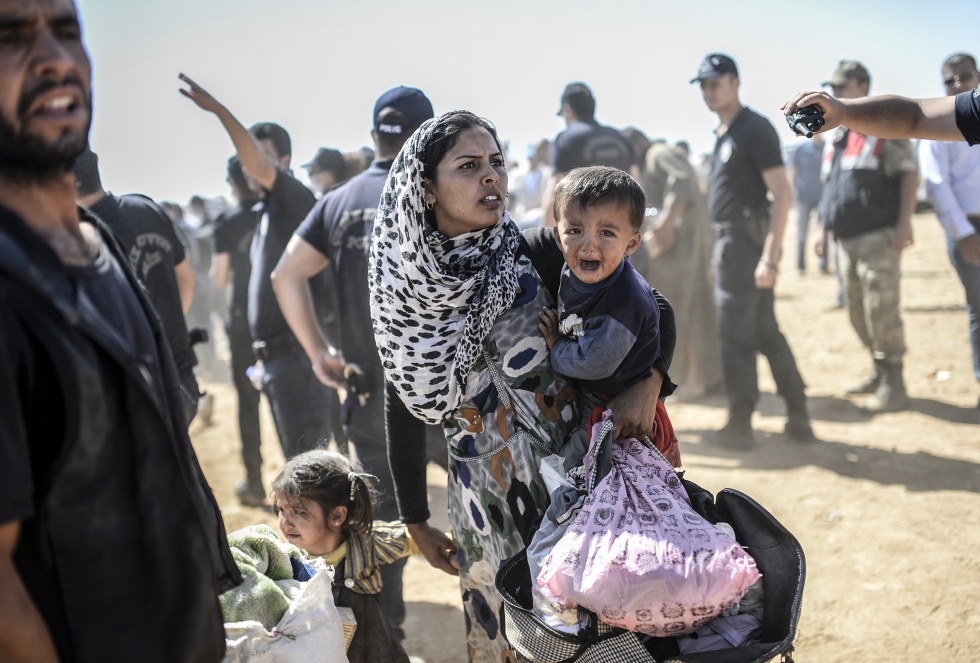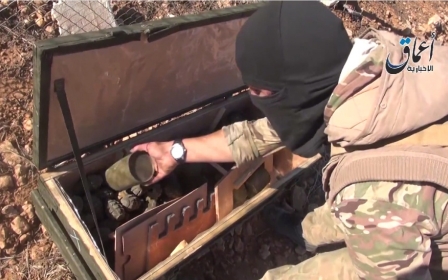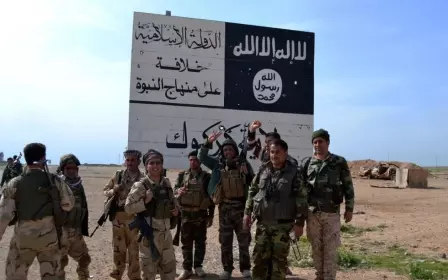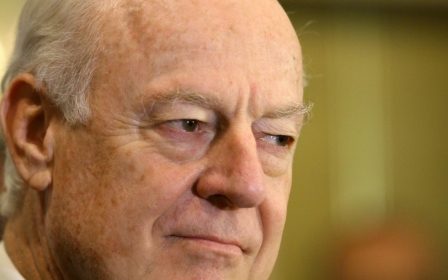World shares blame for Syria's worst year ever: Rights groups

The international community shares responsibility for the worst year yet for civilians in Syria's conflict and has failed to tackle a growing humanitarian disaster, rights groups said on Thursday.
In a report entitled "Failing Syria", 21 human rights organisations criticised world powers for not implementing a series of UN Security Council resolutions on the crisis.
Three resolutions adopted in 2014 urged armed actors in Syria to protect non-combatants and aimed to secure greater access to humanitarian aid for millions of Syrians.
"However, the resolutions, and the hope they provided, have rung hollow for Syrian civilians. They have been ignored or undermined by the parties to the conflict, other UN member states and even by members of the (Security Council) itself," the report said.
Last year was the deadliest yet in the conflict, with at least 76,000 people killed out of a total of more than 210,000 since it began on 15 March, 2011.
As the war enters a fifth year, there is no end in sight.
"This is a betrayal of our ideals, because we're not supposed to be watching people suffer and die in 2015," said Jan Egeland, secretary general of the Norwegian Refugee Council, which contributed to the report.
The report criticised both rebels and regime forces for indiscriminately targeting civilian infrastructure, including schools and health facilities, and for limiting access to civilians in need.
The report, whose signatories included Oxfam, International Rescue Committee and Save the Children, said 4.8 million Syrians live in areas defined by the United Nations as "hard to reach" for aid deliveries - almost twice as many as in 2013.
Among other things, a failing infrastructure has led to untold suffering. According to BBC, 83 percent of the lights have gone out in Syria since the conflict began in 2011.
The BBC also reported that an additional UN-backed report by the Syrian Centre for Policy Research said four years of armed conflict, economic disintegration and social fragmentation in Syria have forced some 10m people to flee their homes and reduced life expectancy by two decades - from nearly 76 years of age to 56.
Also on Wednesday, Medecins Sans Frontieres said a massive increase in medical assistance was urgently required.
In its report, it said from the estimated 2,500 doctors who worked in Aleppo, Syria's second biggest city, before the conflict, fewer than 100 now remain.
The rest have fled, become internally displaced or have been kidnapped or killed.
As needs have increased, funding has not kept pace. Only 57 percent of the money needed to support Syrian civilians and refugees was provided in 2014, down from 71 percent in 2013.
Egeland told AFP that, in the coming year, the UN will need roughly $8.4 bn (7.9 billion euros) in aid for Syrian civilians.
"It's one-sixth of the cost of the 2013 Sochi Olympics - so how could Russia afford the Sochi Olympics, but cannot afford sizeable contributions for this underfunded operation," he asked.
Egeland said the international community could "struggle with the effects of the crisis for two generations to come."
"We're not providing any hope to millions of Syrian youth," he said. "So do we then believe they will not be easily attracted to extremism?"
Syria's conflict began with peaceful pro-democracy demonstrations but escalated into a bloody civil war.
More than 11.2 million Syrians have been displaced in what the UN has called the worst refugee crisis in 20 years.
Middle East Eye propose une couverture et une analyse indépendantes et incomparables du Moyen-Orient, de l’Afrique du Nord et d’autres régions du monde. Pour en savoir plus sur la reprise de ce contenu et les frais qui s’appliquent, veuillez remplir ce formulaire [en anglais]. Pour en savoir plus sur MEE, cliquez ici [en anglais].




